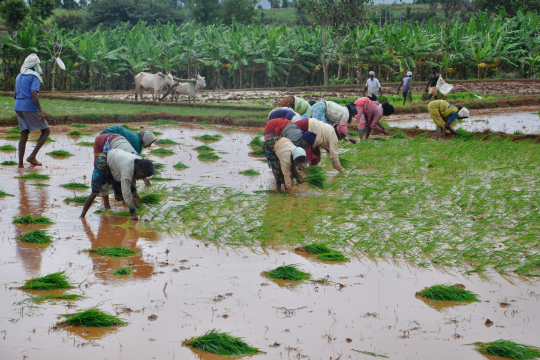Purpose
This paper aims to understand the causes of low adoption of hybrid rice technology. The paper also assesses the impact of adoption of hybrids and modern varieties on crop yield, vis-à-vis the old or traditional varieties.
Design/methodology/approach
Using unit-level data from a large-scale survey of farm households (19,877 paddy cultivators), the authors applied multi-nomial regression method to understand the factors for adoption of hybrid rice and instrumental variable method of regression to estimate its impact.
Findings
The findings demonstrate that in India, hybrid rice is often grown on relatively poor soils, resulting in greater irrigation costs and for other inputs, such as fertilizers. Further, farmers' poor access to information on the traits of hybrid rice and the associated agronomic practices, as well as poor access to financial resources, hampers efforts to scale up its adoption. More importantly, the findings reveal that the relative yield advantage of hybrids over open-pollinated modern varieties is not large enough to incentivize the rapid adoption of hybrid rice technology.
Research limitations/implications
Given the higher cost of hybrids than the inbred varieties, enhancing paddy cultivators' access to financial resources can accelerate the adoption of hybrid rice in India.Originality/valueThe study is based on unit level data from a large-scale, nationally representative survey of farm households, comprising a sample of 19,877 paddy cultivators, spread across states in India.

